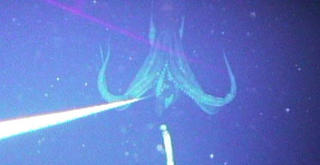Right now I'm only about 200 pages into Jonathan Lethem's novel
Motherless Brooklyn, which is, so far, a semi-detective story about a grown-up orphan with Tourette's Syndrome. Though I haven't finished the book yet, it's been a bit of a surprising experience.
I used to not be able to start a book without finishing it. If I made it past page five, I would feel guilt-stricken and dumb if I didn't soldier on through the entire thing, regardless of how "over my head" it felt at the time (something in my 16-year-old brain told me stop trying with
Ulysses around page three). It was a strange compulsion, a weird self-imposed guilt, the echoes of which remain. The danger of a compulsion like this is that, if I'm not enjoying what I'm reading, or at least not engaged with it, I won't absorb anything, or at least not enough to justify the time and effort spent hammering my way through, say,
The Fountainhead or
The Executioner's Song or
East of Eden or any of at least a dozen long-ass books that I read because I felt that I should, not because I particularly enjoyed them. (Okay, I enjoyed most of
The Executioner's Song, but the last 200 pages were excruciating.)
This drive manifested an opposing guilt as well, which was to feel guilty whenever I was reading something I genuinely enjoyed, but felt wasn't "heavy" enough to bulk up all of the "intellectual capital" (i.e. pretentious bragging rights) I believed I was amassing. I love Kurt Vonnegut, yet I used to feel a sickening twinge whenever I picked up one of his novels because something told me I should be reading something else, something more edifying, something with some history, canonical, & c. Ditto DF Wallace. Ditto biographies (mostly musicians - Mingus, Coltrane, Monk, Miles Davis, Jaco Pastorius . . . almost all jazz, except Jeff Buckley).
Obviously this helped me get through an undergrad degree in English with relative ease. It somehow felt "right" that I was reading what I was reading because it was endorsed by the complex of people and institutions that had somehow wheedled their way prematurely into my head and guts. It's a strange, palpable feeling, almost like being high, when you are doing exactly what you feel like you should be doing, and doing it pretty well. The upshot of this, of course, was that eventually I felt just fine about reading whatever the hell I wanted. I was suddenly freed of that guilt and set free to read whatever I wanted because after 15 hours of upper-division literature and writing classes, and God-knows-how-many hours outside of class, shit, I earned it.
Which brings me up to two recent decisions: 1) an upcoming tattoo (Vonnegut's line-drawing of a bomb with "Goodbye Blue Monday" scrawled across the side, ripped from
Breakfast of Champions), and 2) a conscious decision to read more contemporary literature, including
Motherless Brooklyn.
I'm not sure why I picked this novel. Partially because I bought it about 6 months ago at a thrift store in Tucson, and partially because of a recent trip to Brooklyn. And because I love swearing.
So far I'm not sure how I feel about the way that Lethem chooses to incorporate his narrator's Tourette's-induced "ticcing" into the text. On every page there is a random sampling of outbursts and the narrator, Lionel Essrog, explains his outbursts often and at length. Some of them are great ("Important monks, imported rugs, unimportant ducks" is one of my favorites), and some of them are just bursts of profanity, or garbled echoes of just-spoken dialogue. Around page 150 I began wondering when the explanations for the swearing were going to stop.
Then I realized the difficulty of the position Lethem has put himself in: he can't just stop explaining, expecting the reader to simply adjust, so he has to keep pointing out the tics, keep explaining them, and explaining them. He deals with this in a way that's either novel or cheap. At some point Lionel asks, "Have you noticed yet that I relate everything to my Tourette's? Yup, you guessed it, it's a tic. Counting is a symptom, but counting symptoms is also a symptom, a tic
plus ultra. I've got meta-Tourette's." Everything in the book, the dialogue, the characters, everything, then, becomes a symptom of the disease about which the book is written.
This passage recontextualizes the entire novel, effectively inverting form and content. What you thought was the content - the amusing outbursts, Lionel's accounts of his obsessive-compulsive behavior, the constant counting - is actually symptomatic of the form that the novel takes - that is, the behavioral structure of Tourette's (at least as it's explained in the novel). Early on, Lionel refers to echolalia, a trademark Tourette's tic, and this echolalia continues in Lionel's behavior, the repetition of which kept making me say, "Jesus Christ, is he going to
keep doing that?" Which is, of course, exactly what characters keep saying to Lionel in the book.
To this extent Lethem is extremely clever, but his style is, by necessity, annoying. That's fine, though. Occupational hazard. The first two-thirds of
Motherless Brooklyn has been pretty good, even moving on occasion. If I were more melodramatic, I'd probably try to cook up some bullshit about sympathizing with Lionel Essrog because, I, too, was hindered by behaviors beyond my control. But that would be manipulative and a lie, mostly. True in the sense that we're all controlled by things like that, but a lie because I am no more than most other people. But my compulsion is pretty much gone now, and all it took was forking over tens of thousands of dollars of my parents' money to a state university. A good literary beating was all it took. Pretty much.


